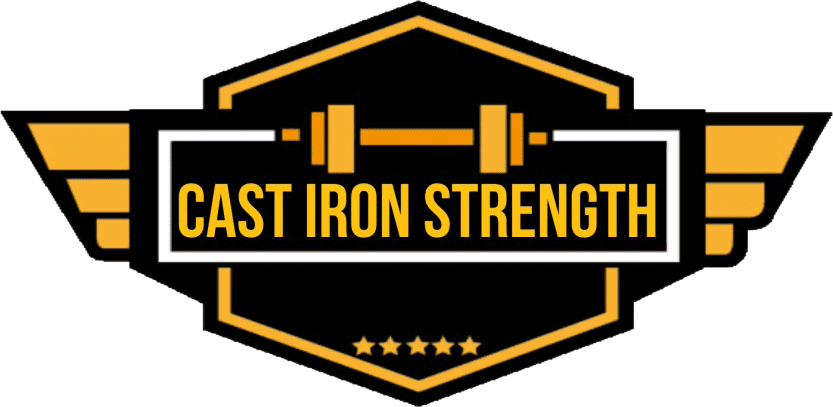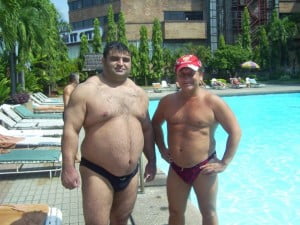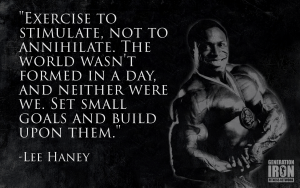8 Years ago I was 22 and of course new everything there was to know about everything. I had recently graduated from my masters course I had amassed the huge total of 620 kg in powerlifting competition, I had competed at the national championships (and bombed) I had been working with “elite” athletes for 2 years and man was I hot shit.
What I was yet to discover was that I didn’t know much about anything really and the fact that I had stepped in a gym and lifted for 5 years, gained two university degrees and read a bunch of books about strength and conditioning didn’t really add up to a hell of a lot. This article is reflection on the wisdom of experience.
1 – Sport isn’t a physics equation.
If you get stronger you are going to run faster, jump higher and become fitter because everything will be relatively easier due to your larger ability to generate force or your increased force capacity. Unfortunately the world is utterly complex and sport is a very complex thing it is almost impossible to distil into a simple idea or model. When you have 30 independent actors on a field trying to engage in what at times can only be described as organised assault the fact that billy put 5 kg on his 1 RM squat or bench press doesn’t really add up to shit. If billy is tired and feeling beat up because you have been flogging him in the weights room trying to increase his ability as a powerlifter he isn’t going to be able to produce the performance he is capable of.
When you are dealing with athletes or people whose goal it is to get stronger to help them with their sport their training needs to be sequenced correctly and applied at the right time. Throwing an in season athlete on 5/3/1 and getting some crazy rep PB isn’t going to negate the fact that there legs are now fatigued and they feel sluggish in their game you have reduced their fitness or preparedness and as a result have done a shit job.
2 – Athletes aren’t powerlifters or weightlifters.
Pragmatism is the single greatest tool in a strength coaches arsenal. We all believe that squat, deadlift, bench press, clean, jerk and snatch are the best ways to develop total body strength and power we have all seen the videos of the huge weightlifters jumping high or seen how explosive they are over 10 meters. Yet we don’t all extol the ability of weightlifters to kick a ball 60 yards accurately or make a 70 meter quarter back pass.
We all carry our own biases and chances are if you are strength and conditioning coach from the UK or your from America and come from a powerlifting or weightlifting back ground you have a strong affinity for barbell training. The sooner you realise that it is only one tool in a multitude of ways in resistance training or strength training an athlete the sooner you will free yourselfs from the shackles of elitism engrained by what is good lifter practice.
For a power lifter it is essential to train to the correct depth required for you federation or else you will struggle in competition. For a handball player it doesn’t matter a jot if they squat or not, it doesn’t matter. They aren’t judged on their ability to power lift they are judged on their ability to play hand ball. Of course squatting has a lot of benefits it can confer to them for their sport.
Now what I want someone to do is to provide me conclusive proof the depth of that squat gives them a multitude of additional benefits compared to a box squat or half squat. I know you can drag out some studies that show some athletic benefits but can you show me one done in an elite athletic population involving a meaningful amount of time and some meaningful testing results? Go on I am waiting.
Half squatting is a world easier to do than full squatting it requires orders of magnitude less skill and flexibility and confers a strength training stimulus to the legs. For a lot of sports joint and tendon stiffness is what makes a player or athlete who they are, why spend 5-10% of their training time trying to smash a square peg into a round hole. Find the correct hole for the peg and concentrate on something that is going to confer a performance benefit.
3 – The vast majority of what we do is a waste of time
A lot of coaches and people get caught up in the small detail of what we do when it comes down to things like monitoring and the more sports science side of the role. What I have seen in action over the best part of a decade however is that sort of small level of detail or recording shows you how good the basic training is working and that is pretty much as far as it goes.
I don’t know how many papers and books I have read over the years but I can tell you that the amount of sports science based books on training I have read in the latter 4 years of my coaching career has dwindled massively. See truth is that sports science is still in it’s infancy as a discipline and should be treated as such, it can lead to a lot of good ideas and innovate additions to a solid programme however basing all of your training off western sports science and sports science alone is one sure fire way to hamstring your progress.
When looking for a systematic review of linear vs undulating perodisation for strength training you will be presented with a one maybe two studies with sample sizes that would get laughed out of a medical trial proposal. If you can get your hands on population specific data based off years of accumulated research then your sitting on a gold mine of information. For instance if you are a weightlifter there existed a wealth of russian sports science that is massively useful and applicable.
If you are a semi elite rugby player or footballer however you sit in a much more difficult scenario. That study you are looking at involving 20 college students that took part over 8 weeks is probably more use as toilet paper as it is to inform your training choices.
With out well controlled targeted specific research you need huge populations and longitudinal designs of which we have neither.
4 – Training hard can be a very bad thing
You can make huge gains pushing someone beyond what they are used to if they have come from a relatively low level of training history or if their previous coach was quite conservative with their training cycles. Give me a lifter who has been shown correct technique and trained with solid programming for 2 years who has an 180 kg squat and I will give you a 220 kg squat in 2 or 3 training cycles. Now that sound like phenomenal progress but it comes at a cost.
When someone pushes themselves like that you exponentially increase the stress they are going through during training. They are going to be stiff and sore after sessions. They will experience back siezures, cramps after sets and weekly DOMs after sessions. If you are training with sufficient volume or intensity DOMS are going to be a part of your life a very real and crippling part. If your job is to play a sport or perform in something that isn’t body-building than DOMs should be avoided through all competitive training cycles.
A seized back after a hard dead lift session is part of life for the steroid enhanced strongman or powerlifter you know your going to get stronger if you complete the workout testosterone is going to take care of that worry.
For a natural strength athlete who is strong that workout might fuck the next 4 weeks of training since your going to be too stiff for next week and probably gonna suffer for the best part of a month.
For a professional athlete that is a week or more of missed sports training and for a sports athlete that is a missed game, which could be your last such is professional sport.
I can get anyone stronger and in most cases much stronger but it doesn’t mean that they are going to be better. Far better to focus your strength training on cyclical sub maximal volume cycles that build maximum and general strength slowly whilst inducing little to no DOMs or any real fatigue. 2 Session a week on a correctly structured barbell programme will give most athletes 90% of all the power and strength gains they will probably ever need.
If you are an athlete best listen to Lee Haney
In the next instalment of this series I will cover the last 4 things that I thought I knew.
Marc





